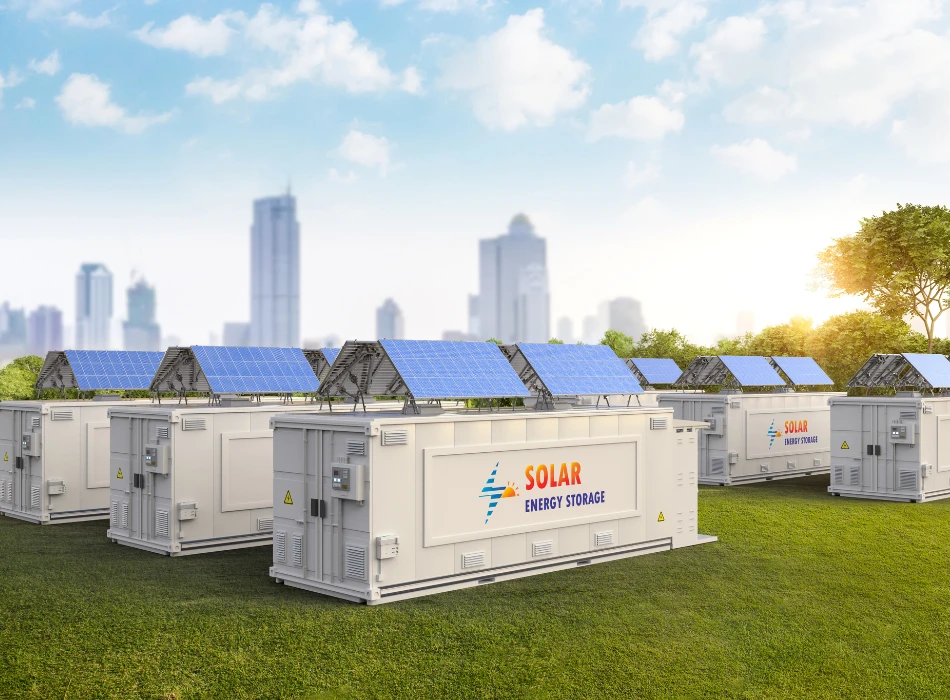Solar-Powered Cold Storage: Green Solutions for Perishable Goods
Explore solar-powered cold storage solutions for perishable goods, highlighting their benefits, technologies, and leading providers committed to sustainability.

As the global demand for perishable goods continues to rise, the need for sustainable storage solutions has never been more critical. Solar-powered cold storage systems are emerging as a viable answer to the challenges of food preservation, particularly in regions with limited access to electricity. These innovative solutions not only reduce reliance on fossil fuels but also help minimize food spoilage, thus enhancing food security and supporting local economies.
This blog will explore the benefits, technologies, and leading providers of solar-powered cold storage solutions for perishable goods.
Benefits of Solar-Powered Cold Storage
Sustainability and Reduced Carbon Footprint
- Solar-powered cold storage systems utilize renewable energy, significantly lowering greenhouse gas emissions compared to traditional refrigeration methods. This aligns with global sustainability goals and helps combat climate change.
Cost-Effectiveness
- By harnessing solar energy, these systems reduce operational costs associated with electricity consumption. Many solar cold storage solutions require minimal maintenance, further lowering long-term expenses.
Enhanced Food Preservation
- Maintaining optimal temperatures is crucial for extending the shelf life of perishables. Solar-powered cold storage units can effectively keep fruits, vegetables, dairy products, and pharmaceuticals at required temperatures, reducing spoilage rates.
Accessibility in Remote Areas
- Solar cold storage is particularly beneficial in rural or off-grid locations where access to reliable electricity is limited. These systems can be deployed in farms and markets, ensuring that local producers can store their goods safely.
Key Technologies in Solar-Powered Cold Storage
Thermal Energy Storage
- Many solar cold storage solutions utilize thermal energy storage systems that store excess solar energy during the day for use during non-sunny hours. This technology ensures continuous cooling even when sunlight is not available.
IoT Integration
- Advanced IoT-enabled systems allow for real-time monitoring of temperature and humidity levels, ensuring optimal conditions for stored perishables. Predictive maintenance features help identify potential issues before they lead to spoilage.
Modular Design
- Modular solar cold storage units can be easily scaled up or down based on specific needs. This flexibility allows users to customize their storage capacity and adapt to changing demands.
Leading Providers of Solar-Powered Cold Storage Solutions
- Ecofrost
Ecofrost offers solar-powered cold storage rooms that efficiently harness solar energy while providing battery-less backup for up to 30 hours. Their systems are designed for a temperature range of 4°C to 10°C, making them ideal for preserving various perishable goods. The integration of IoT technology allows for predictive maintenance and real-time monitoring Ecofrost. - Bharat Refrigerations
Bharat Refrigerations provides hybrid solar cold rooms capable of operating throughout the year, even without sunlight. Their systems are designed with a polyurethane insulation thickness of 100 mm, ensuring effective temperature control between 0°C to 15°CBharat Refrigerations. - Inficold
Inficold specializes in solar cold storage solutions that do not require electrical batteries, utilizing thermal energy storage instead. Their systems can be configured for various applications and temperature ranges from -4°C to 15°C, addressing high food spoilage rates in India due to inefficient cold chain networks Inficold. - ColdHubs
ColdHubs offers modular walk-in solar-powered cold rooms that extend the shelf life of perishable foods from 2 days to 21 days. Their flexible pay-as-you-store model makes it accessible for small farmers and vendors ColdHubs. - Termodizayn
Termodizayn provides portable solar-powered container-type cold storages that can be easily transported to farms or production facilities. These units are designed to operate independently of grid power, making them suitable for various perishable items Termodizayn.
Conclusion
Solar-powered cold storage solutions represent a significant advancement in sustainable food preservation practices. By reducing reliance on fossil fuels and providing effective temperature control for perishables, these systems contribute to food security and economic stability in agricultural communities. As more businesses recognize the benefits of solar technology in cold chain logistics, we can expect continued innovation and growth in this sector, ultimately leading to a more sustainable future for food preservation.